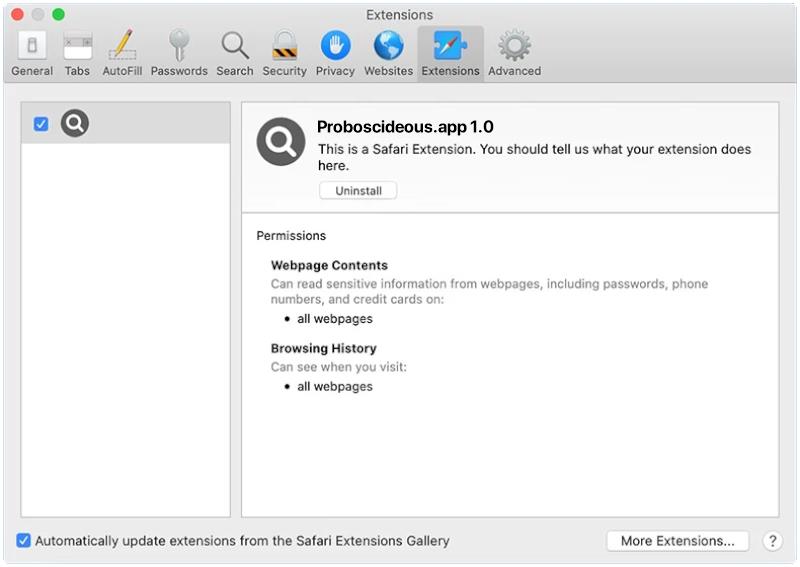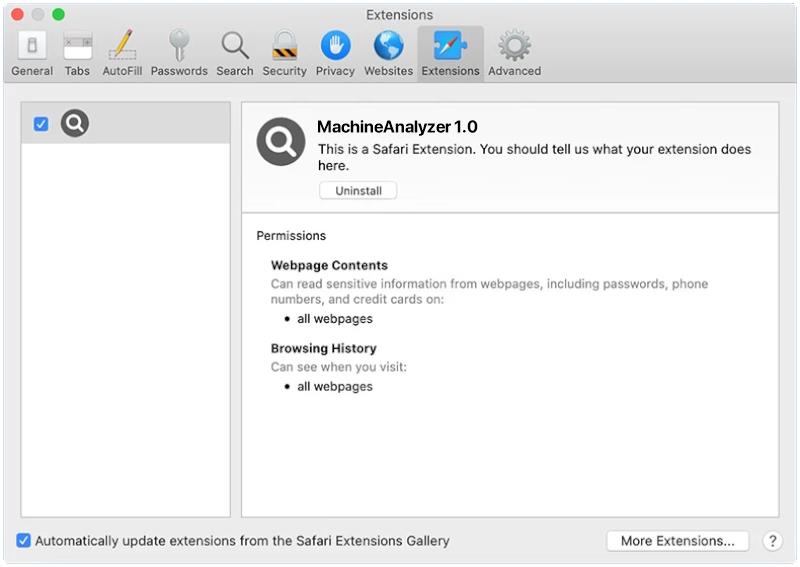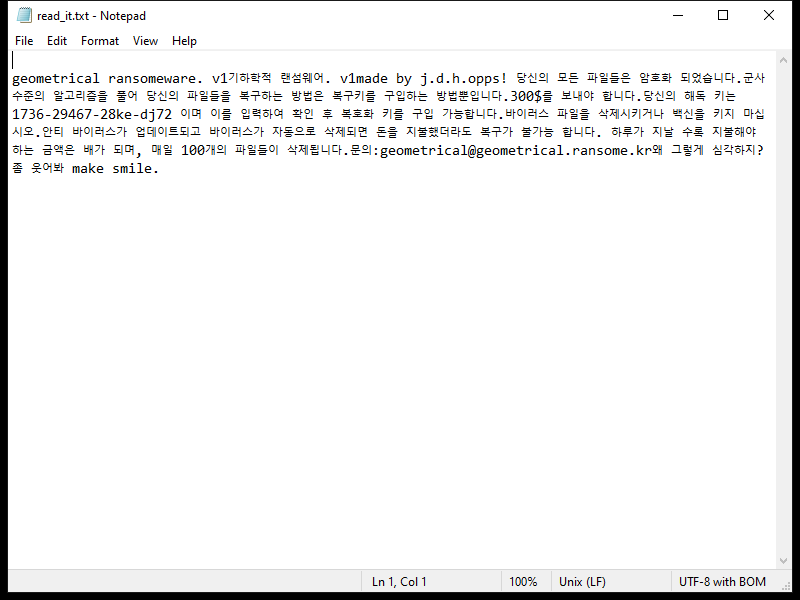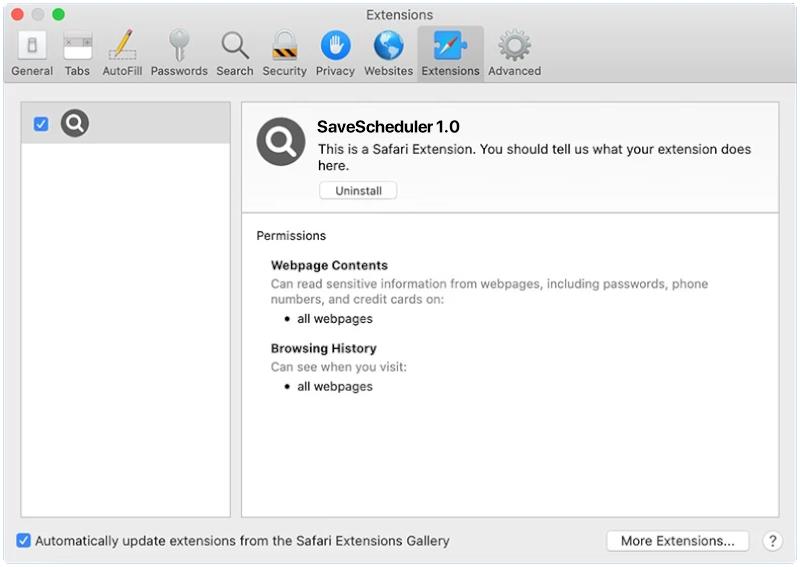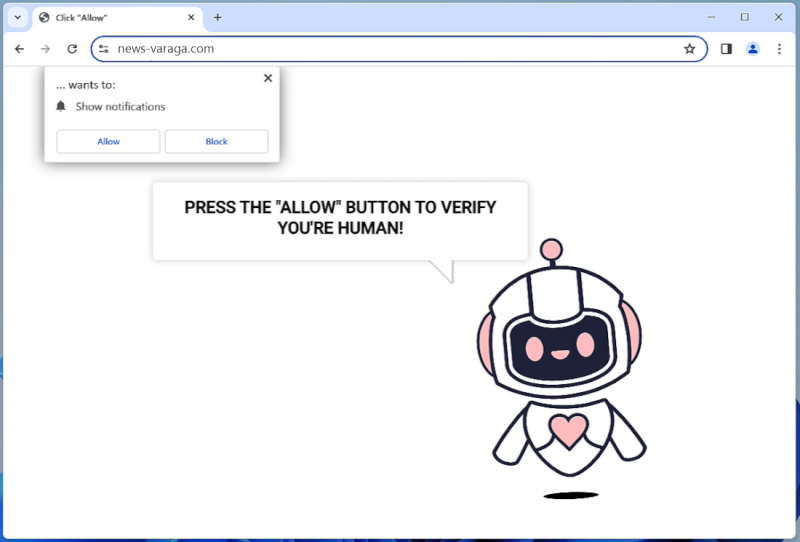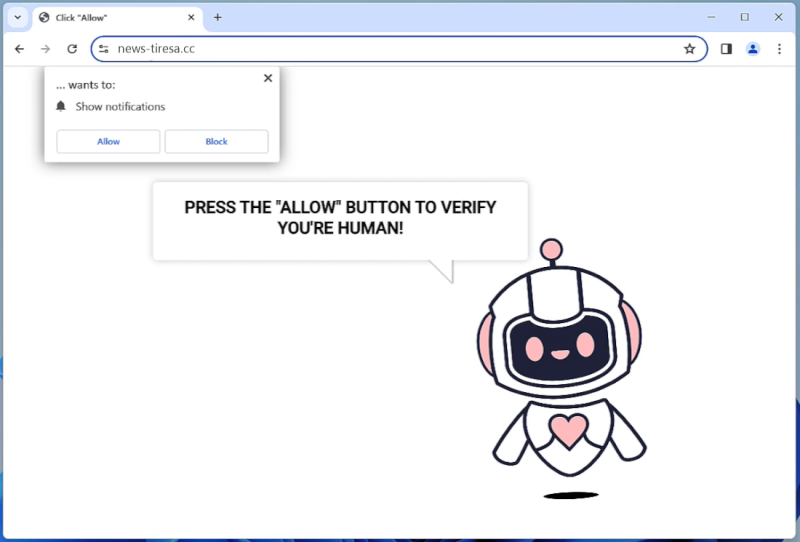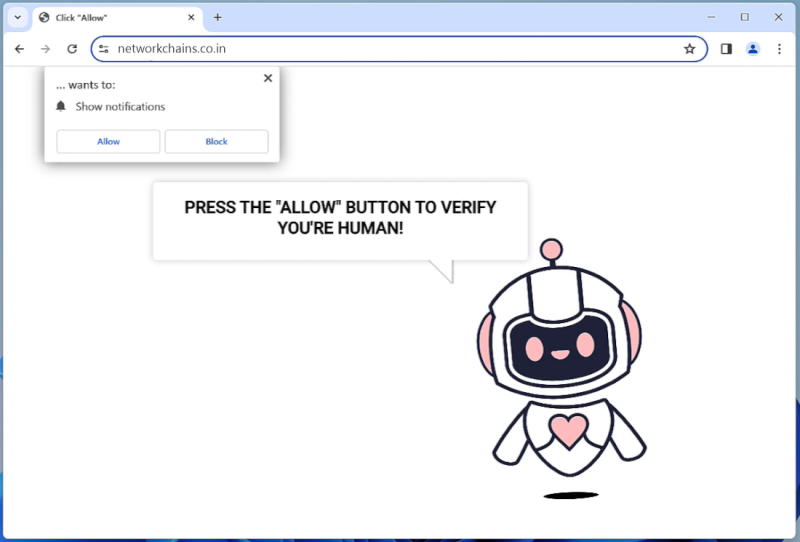Proboscideous.app is a potentially unwanted program (PUP) that is categorized as adware. It is designed to generate revenue for its developers through intrusive advertisement campaigns. Once installed on a Mac system, Proboscideous.app will display various pop-up ads, banners, and sponsored links while the user is browsing the internet. These ads can be very annoying and disruptive to the user’s online experience.
Proboscideous.app typically infects Mac systems through software bundling, where it is included as an additional component in the installation package of other software. Users may unwittingly install Proboscideous.app when they download and install free software from unreliable sources without carefully checking the installation process for any additional programs. Once installed, Proboscideous.app will modify browser settings and start displaying advertisements to generate revenue for its developers. Users are advised to be cautious when downloading software from the internet and always opt for custom installation to avoid installing potentially unwanted programs like Proboscideous.app.

